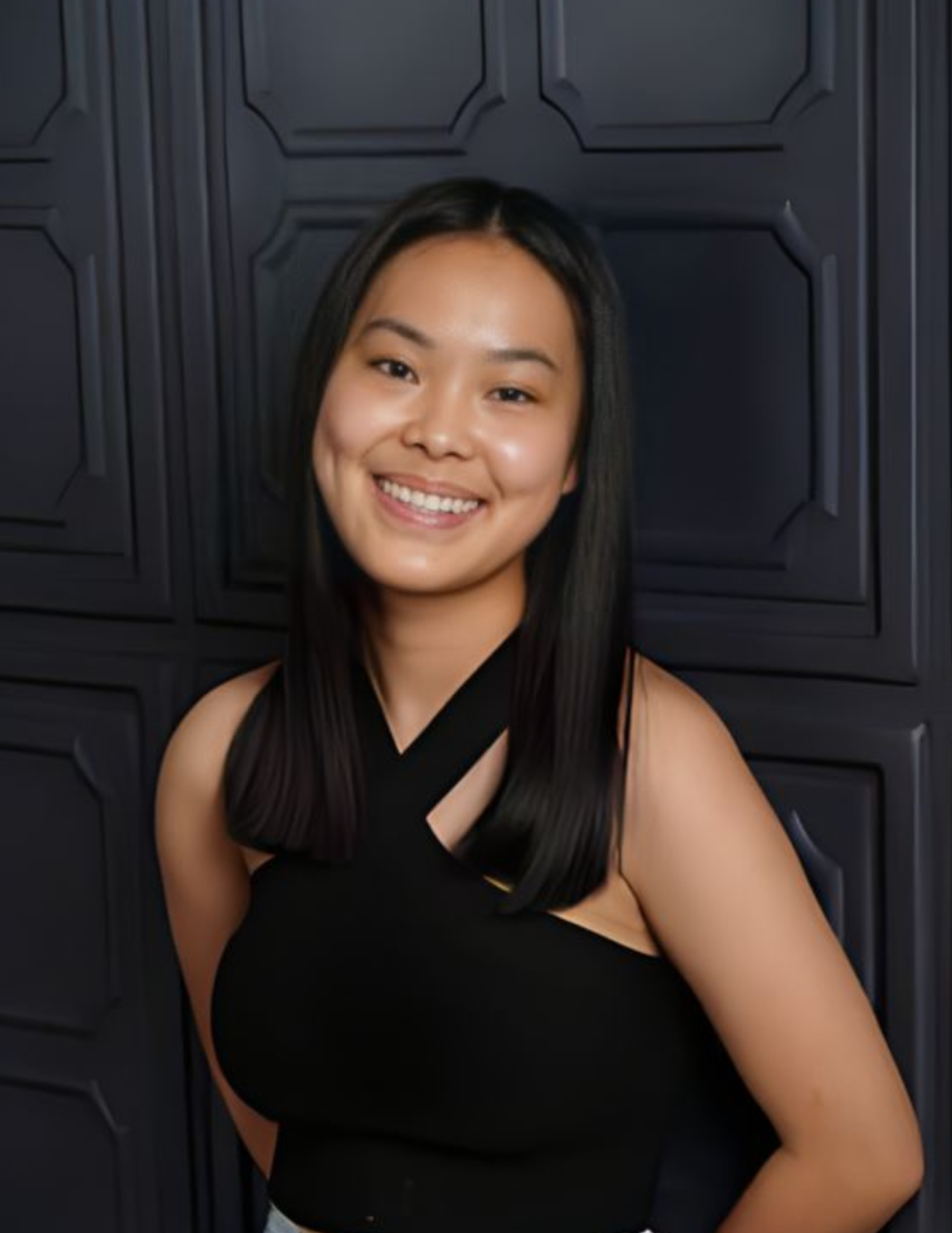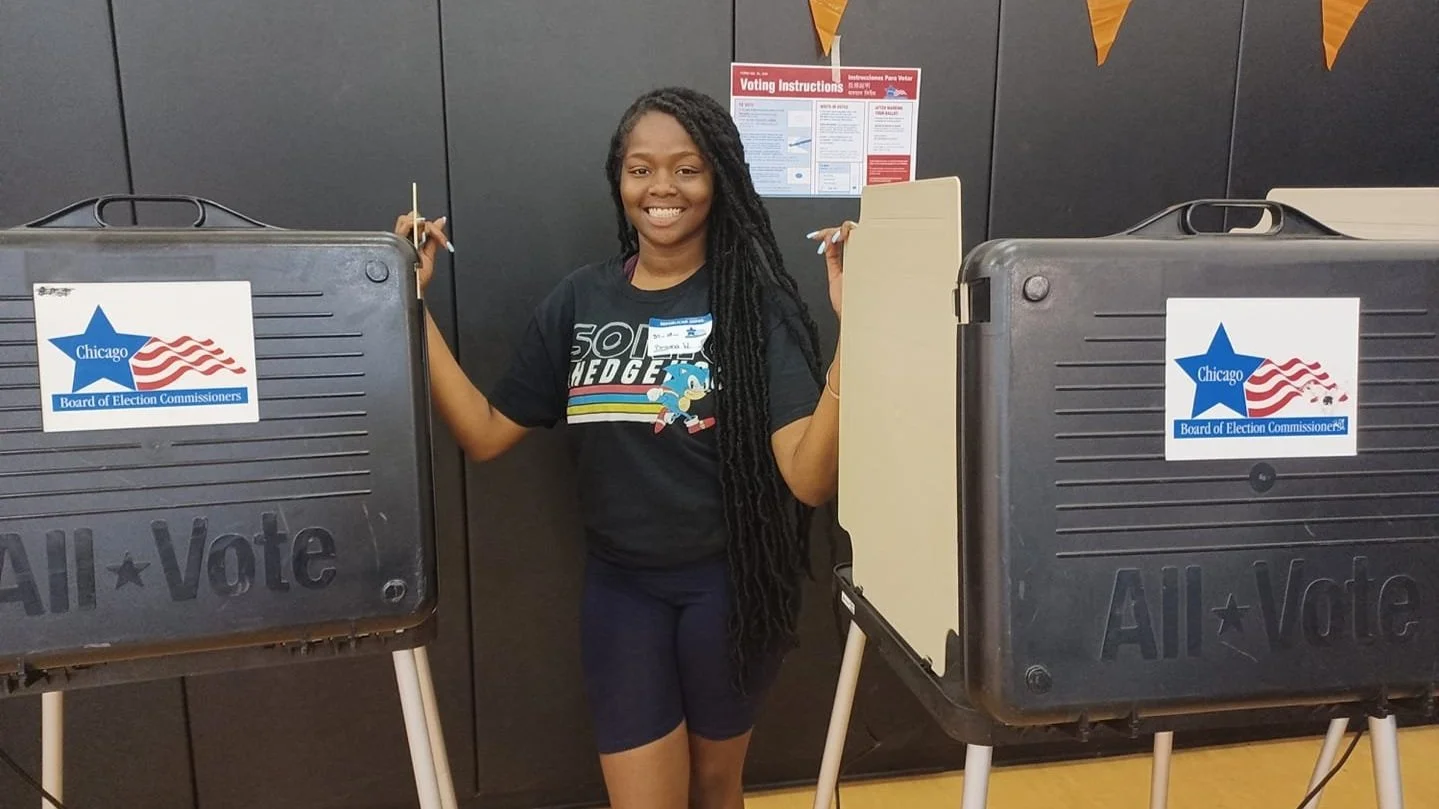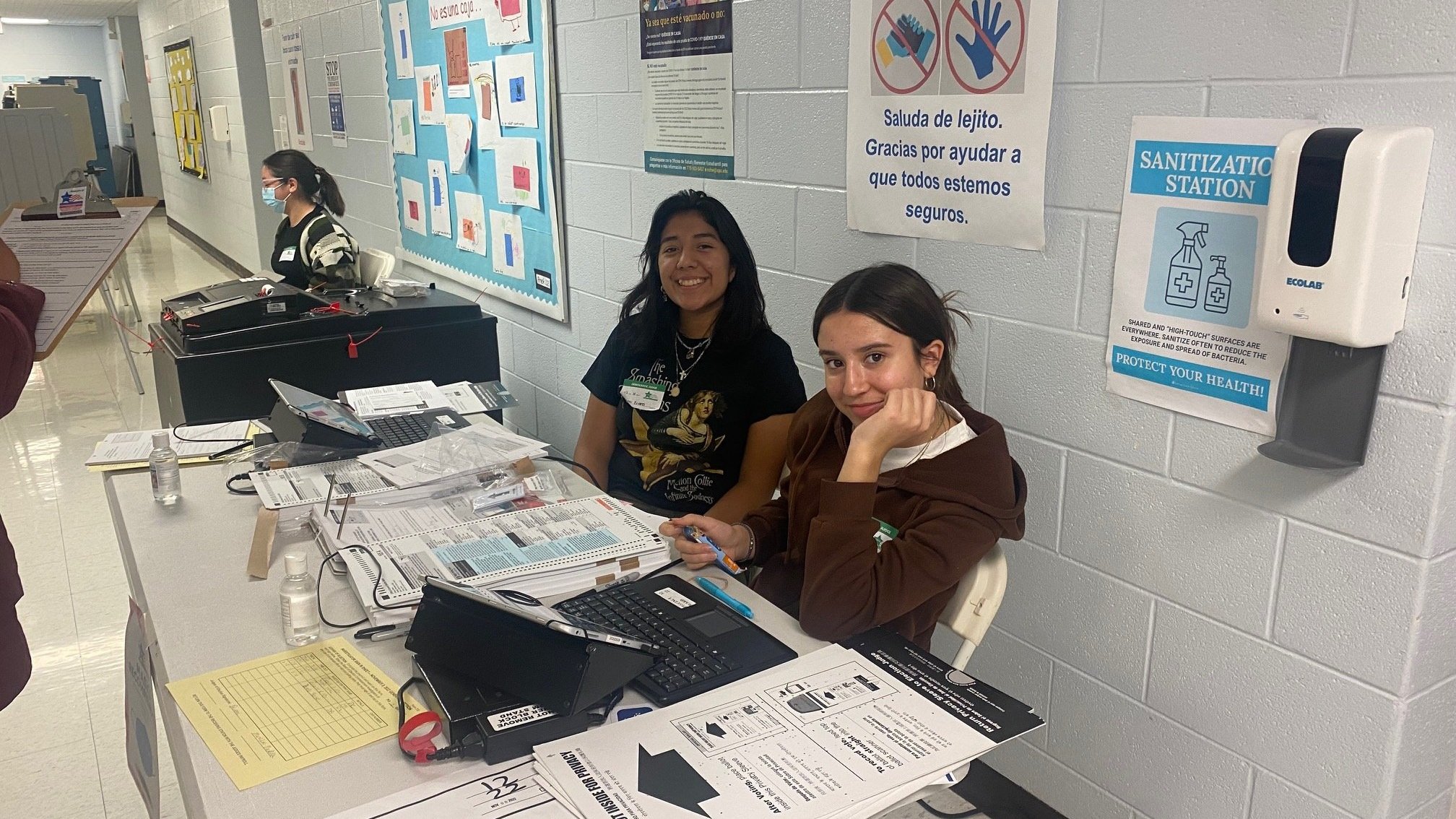An Interview With Hannah Yu
“Gen Z and Millennials are one of the biggest voting blocs in America – if decisions are being made, we should be involved with those, especially if they're directly affecting our lives and our futures.”
Every election year, over a thousand students across the country participate in Mikva’s Elections in Action program. The program provides young people with far more than a chance to witness the democratic process – it invites them to play pivotal roles in elections across the country. For Hannah, a senior at Stevenson High School, being able to be a part of the election process was a transformative experience.
Her election experience began where many election experiences begin – the Iowa Caucus. Hannah was one of the over 200 Mikva students who visited Iowa in January of 2020, where youth contributed to campaigns, met candidates and discussed youth policy priorities.
“I went on the field trip through my school's political action club,” Hannah shared. “I remember meeting Senator Warren, meeting with students from a bunch of different schools across the country – that was my intro to Mikva.”
For Hannah, the January 2020 caucus was merely the beginning. Soon after she returned she received an email from one of her teachers Mr. Coneen, inviting students to apply to serve as a student election judge through Mikva Challenge.
Mikva Challenge’s election judge program, a 20-plus year partnership between Mikva Challenge and the Chicago Board of Elections, places over 1,000 student election judges in polling sites around Chicago. For many students, including Hannah, being able to be a part of the democratic process before being eligible to vote is an illuminating experience.
“I'm pretty sure you have to be 16 to be an election judge. And my birthday was five days before the election,” Hannah said. “I was probably one of the youngest people who did it that year!”
“I considered myself to be relatively politically knowledgeable and engaged, but I learned a lot of specific things about election administration that I didn't know,” Hannah continued. “You learn a lot even by meeting the other people who are involved with it.”
In 2022, over 1,300 youth stepped up to work as election judges at over 600 polling sites across Chicago. Student election judges bring enthusiasm, technological savvy, and translation skills to polling places.
For Hannah, who is about to serve as a student election judge for the third time, her experience working with veteran election judges as well as hearing about election judge shortages during the 2020 election cycle, inspired a commitment to getting more youth engaged in the program.
“Typically our election judges are older – in the Chicagoland area the average age of an election judge is 65 to 70,” Hannah explained. “There was also a study from the Brennan Center for Justice that found 20% of election workers plan to leave the field – and that one in six have faced harassment, threats, intimidation, within the past few years.”
“And, you have the doubt that has been created in our society, overall, towards the validity of elections,” she continued.
“We also know that, if a home location has to shut down, then the most disenfranchised, most marginalized members of society are the ones who are most affected,” Hannah emphasized. “I saw all these things and I was like, there has to be something I can do.”
In the fall of 2020, when Hannah completed an internship with Illinois state representative Daniel Didech, she had the opportunity to take action on her election judge ideas. During her internship she partnered with Didech to draft the Student Election Judge Academic Credit Bill, which is currently under consideration by the Illinois General Assembly. If passed, the bill would allow college-aged students who serve as an election judge to receive academic credit for their service. Hannah sees this as a great option for addressing multiple challenges facing elections.
“First of all, we're getting more young people involved in the election and hopefully bringing the [election judges] age down,” Hannah explained. “We're working on rebuilding the state's election workforce.”
Plus, she sees the student election judges program as an engaging opportunity for civic education.
“It's really good to have that firsthand experience, in the election administration and what happens behind the scenes,” Hannah said, adding that she hopes more young people become engaged as not just election workers but voters. “Gen Z and Millennials are one of the biggest voting blocs in America – if decisions are being made, we should be involved with those, especially if they're directly affecting our lives and our futures.”
Mikva Challenge’s impact data found that serving as a student election judge can directly result in the outcomes Hannah advocates for. Over 98% of students who serve as election judges report that they intend to vote in future elections and 96% plan to continue serving as an election judge in the future.




